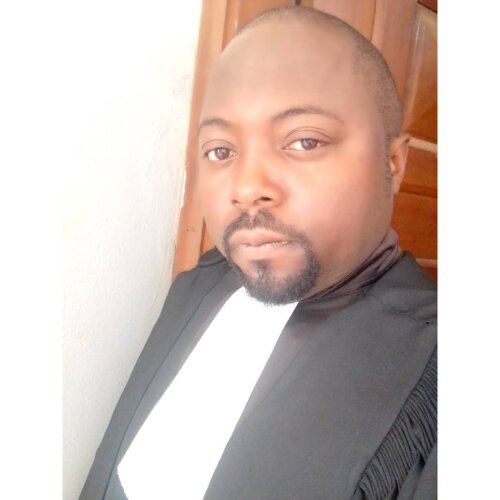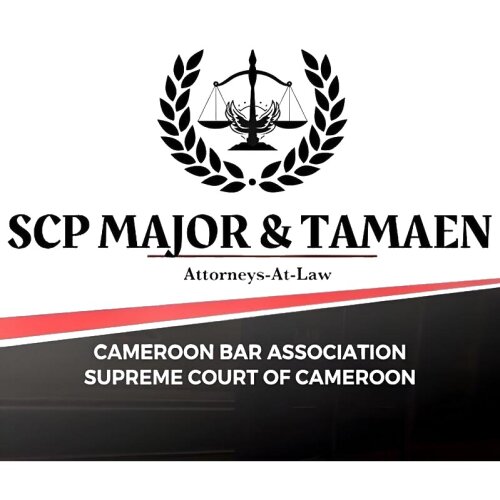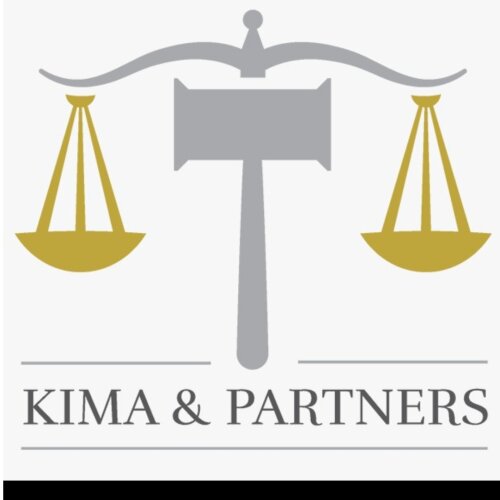Best Water Law Lawyers in Yaoundé
Share your needs with us, get contacted by law firms.
Free. Takes 2 min.
List of the best lawyers in Yaoundé, Cameroon
Legal guides written by CHI & Partners Law Firm:
- Ship Registration in Cameroon
About Water Law in Yaoundé, Cameroon
Water Law in Yaoundé, Cameroon, refers to the collection of legal rules and regulations that govern the control, use, protection, and management of water resources within the city and, more broadly, in Cameroon. Water is a critical resource for drinking, agriculture, industry, and sanitation, making its regulation a priority for public health, economic development, and environmental sustainability. The laws and policies address issues such as water rights, allocation, pollution control, public and private access, infrastructure management, and the responsibilities of different stakeholders. In Yaoundé, which is the political capital, these laws also reflect the national water policy and Cameroonian legal frameworks, with local regulations enforced by municipal and regional authorities.
Why You May Need a Lawyer
Engaging a lawyer who specializes in Water Law can be crucial in a variety of situations:
- You are facing disputes regarding water rights or usage, such as conflicts between neighbors or businesses over access to water sources.
- You need to understand regulations for drilling wells, installing boreholes, or accessing municipal water supply.
- Your property has been affected by water pollution or contamination, and you wish to seek redress or compensation.
- You require guidance on obtaining water use permits for agricultural, industrial, or commercial purposes.
- You are involved in a construction project that could impact local water systems and need to comply with environmental requirements.
- You are addressing issues related to wastewater management and the discharge of effluents under Cameroon's environmental laws.
- Your community organization needs help navigating public participation in water management or government-led water projects.
- You need to review contracts involving water supply and services, especially with private suppliers or community water committees.
Local Laws Overview
In Yaoundé, Water Law is framed by several national statutes, regional regulations, and local municipal codes. The most significant legal references include:
- The Law No. 98/005 of April 14, 1998 on Water Management in Cameroon, which outlines the general principles of water use, sanitation, and resource protection.
- The Decree No. 2001/161/PM of May 8, 2001 which sets the procedures for extracting water and operating water supply systems.
- Environmental Laws and decrees that regulate pollution, wastewater discharge, and penalties for unlawful actions affecting water resources.
- Municipal by-laws that may introduce additional controls or requirements for water-related construction, borehole drilling, and waterborne disease prevention.
- The Ministry of Water and Energy (MINEE) is the supervising body for water management at the national level, with regional delegations active in Yaoundé.
- Rights to access, use, or divert water are subject to administrative permits, and the unauthorized abstraction of water or pollution is subject to prosecution.
Rules often distinguish between public waters (such as rivers and lakes) and private waters (such as wells on private land), and further specify powers and obligations of users, governmental agencies, and concessionaires. Regulations also address the sharing of water for urban and rural uses, and measures to promote community participation and sustainability.
Frequently Asked Questions
What is Water Law and who does it apply to in Yaoundé?
Water Law refers to the legal rules governing ownership, access, use, and protection of water resources. It applies to individuals, communities, companies, and government entities involved in using or managing water within Yaoundé.
Who owns water resources in Cameroon?
Under Cameroonian law, water resources are considered public property under the control of the State, managed for the common good. Private individuals may have rights to use certain waters, but these rights are regulated.
Do I need a permit to dig a well or borehole on my property?
Yes. Drilling a well or borehole for domestic, agricultural, or industrial purposes generally requires prior authorization from the competent authorities. This is to ensure proper management and prevent over-exploitation or contamination.
Can I freely use water from a river or stream on my land?
No. While you may have rights to use water adjacent to your property, the use must comply with national laws and may require a permit depending on the quantity and purpose. Overuse or pollution of water bodies is prohibited.
What should I do if my drinking water is contaminated?
You should report the issue to the local authorities, such as the MINEE regional office, and seek assistance from public health officials. If contamination is due to another party's actions, you may have legal grounds to seek compensation or remediation through the courts.
What are the penalties for illegal water use or pollution?
Penalties include administrative fines, criminal sanctions, requirement to repair damage, and even imprisonment in severe cases. The severity depends on the type of violation and its impact.
Who is responsible for the supply of potable water in Yaoundé?
Public water supply in Yaoundé is managed by the State through the Cameroon Water Utilities Corporation (CAMWATER) and private operator CDE, under the supervision of MINEE.
How are water disputes resolved?
Disputes can be settled through mediation, administrative decisions, or litigation in the courts. Lawyers can help by negotiating settlements, presenting cases, or appealing administrative decisions.
Are there specific rules for industrial water use?
Yes. Industries must obtain specific permits, comply with regulations on quantity, quality, and effluent discharge, and may be required to submit environmental impact assessments.
Can communities participate in water management decisions?
Yes. Laws encourage community participation in the planning and management of water projects, particularly at the local level. This can include involvement in community water committees or in public consultations organized by authorities.
Additional Resources
If you need more information or assistance, the following resources may be helpful:
- Ministry of Water and Energy (MINEE) - Administrative body responsible for water sector policy and regulation in Cameroon.
- Cameroon Water Utilities Corporation (CAMWATER) - Manages urban water services and infrastructure.
- Municipal Councils of Yaoundé - Often regulate local water use, well permits, and sanitation.
- Cameroon Bar Association - Can help you find a qualified lawyer specializing in Water Law.
- NGOs and development organizations such as SNV Cameroon or GIZ, which work on water access, sanitation, and rights advocacy.
Next Steps
If you are seeking legal assistance regarding Water Law in Yaoundé, you can take the following steps:
- Identify your specific issue or need, such as a dispute, permit application, or environmental concern.
- Gather all relevant documents, permits, contracts, and any evidence related to your case.
- Contact a lawyer who specializes in Water Law or environmental law. You can ask your local bar association for recommendations or consult with NGOs working in the water sector.
- If your issue involves public agencies, reach out to the Ministry of Water and Energy or your municipal council for guidance and any necessary forms or information.
- Stay informed about your rights and obligations. Attend community meetings or informational sessions if available.
- For urgent water contamination or safety emergencies, alert the local authorities and seek public health assistance immediately.
Getting proper legal support can help you protect your rights, resolve conflicts, and ensure compliance with water regulations. Take timely action to address your concerns and always consult a legal professional before taking important steps related to Water Law in Yaoundé, Cameroon.
Lawzana helps you find the best lawyers and law firms in Yaoundé through a curated and pre-screened list of qualified legal professionals. Our platform offers rankings and detailed profiles of attorneys and law firms, allowing you to compare based on practice areas, including Water Law, experience, and client feedback.
Each profile includes a description of the firm's areas of practice, client reviews, team members and partners, year of establishment, spoken languages, office locations, contact information, social media presence, and any published articles or resources. Most firms on our platform speak English and are experienced in both local and international legal matters.
Get a quote from top-rated law firms in Yaoundé, Cameroon — quickly, securely, and without unnecessary hassle.
Disclaimer:
The information provided on this page is for general informational purposes only and does not constitute legal advice. While we strive to ensure the accuracy and relevance of the content, legal information may change over time, and interpretations of the law can vary. You should always consult with a qualified legal professional for advice specific to your situation.
We disclaim all liability for actions taken or not taken based on the content of this page. If you believe any information is incorrect or outdated, please contact us, and we will review and update it where appropriate.













